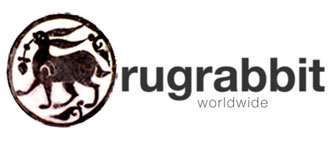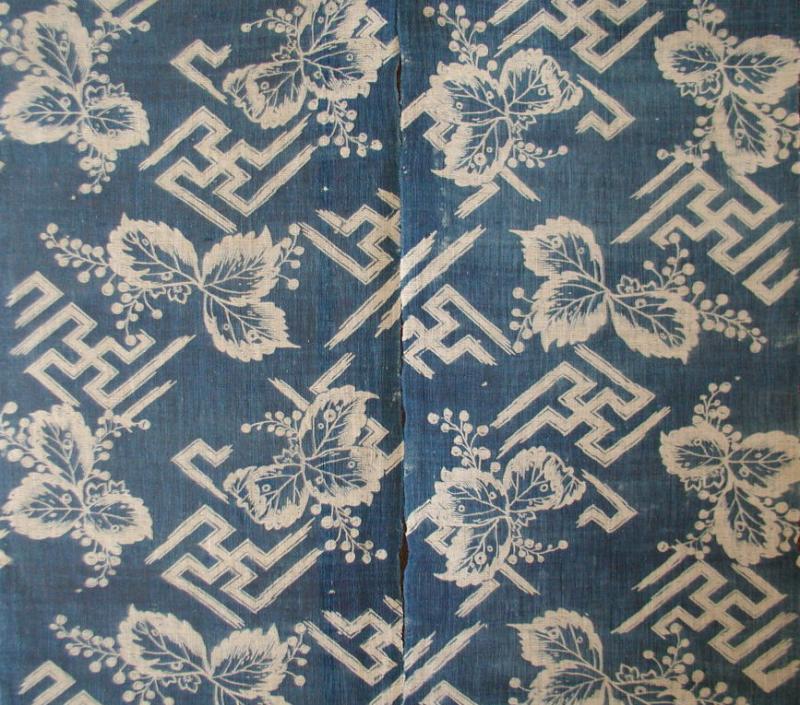Back
asa katazome noren, Japan, Meiji (circa 1880), cm 147x60. ‘Asa’ is akin of linen, and is the general term used in Japan for bast fiber cloths woven from plants such as ramie, hemp, linden, wisteria, nettle, kudzu, etc. The object we are offering here is a splendid Meiji-era noren (curtain) obtained by partially joining two lengths of an hemp asa fabric. It features a very fine katazome (stencil-dyed) pattern of ‘kiri’ (paulownia) leaves with sprays of blossoms, running up and down the length. These alternate with ‘sayagata’ (swastika, sometimes called also "monk's maze") motifs, first imported into Japan from India via China on the silk road during the Asuka period (6th-7th century). Other than some overall gentle fading, the fabric is in outstanding condition, with no significant holes or stains; the hemp asa is hand-plied and hand-woven, and the indigo of is course botanical. a wonderful textiles that incorporates much from the soul of Japanese art’s ‘Weltanschauung’.
price:
SOLD
- Home
- Antique Rugs by Region
- Category
- Profiles
- Post Items Free
- Albums
- Benaki Museum of Islamic Art
- Budapest: Ottoman Carpets
- Gulbenkian Museum
- Islamic Carpets. Brooklyn
- Islamic Textiles. Brooklyn
- Konya Museum: Rugs
- MKG, Hamburg
- MMA: Caucasian Carpets
- MMA: Mamluk Carpets
- MMA: Mughal Indian Carpets
- MMA: Ottoman Carpets
- MMA: Safavid Persian Carpets
- MMA: Turkmen Rugs
- McCoy Jones Kilims
- Ottoman textiles. Met
- Philadelphia Museum
- Rugs and Carpets: Berlin
- Seljuqs at the Met
- TIEM, Istanbul: Carpets
- V&A: Classical Carpets
- Vakiflar Carpets: Istanbul
- Baluch Rugs: Indianapolis
- Gallery Exhibitions
- Jaf an Exhibition
- Alberto Levi Gallery
- Andean Textile
- Christie's London: 2016
- Francesca Galloway
- HALI at 40
- ICOC Washington, DC 2018
- Jajims of the Shahsavan
- London Islamic Week April, 2018
- Mongolian Felts
- Navajo Rugs: JB Moore
- Persian Piled Weavings
- SF Tribal & Textile Art Show 2020
- SF Tribal 2019
- Sotheby's: C. Alexander
- Turkish Prayer Rugs
- Turkmen Main Carpets ICOC 2007






